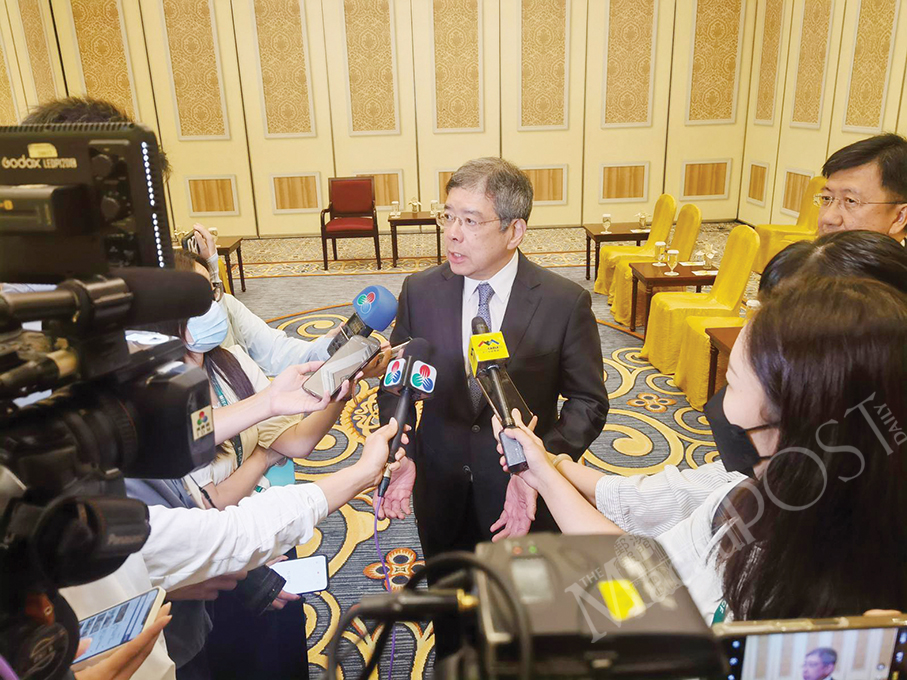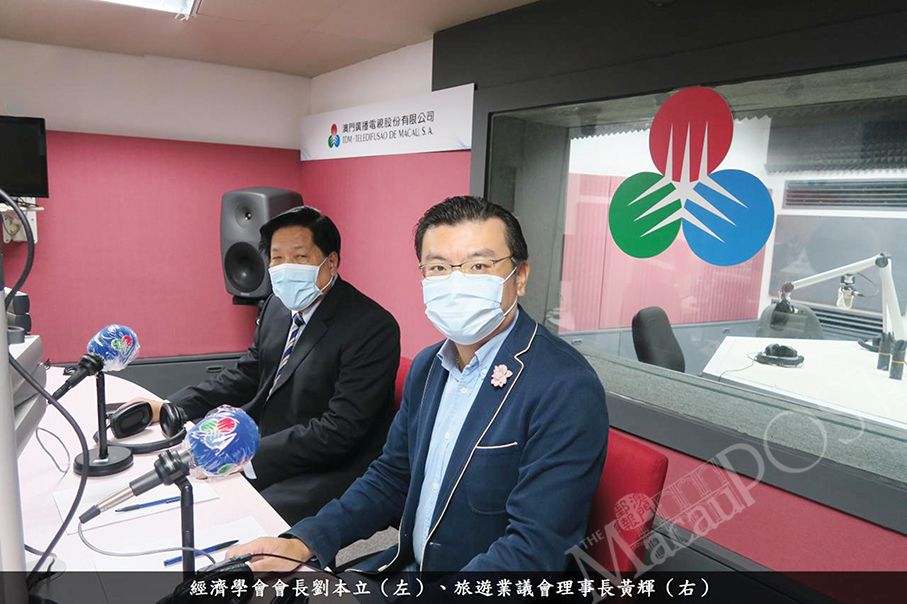Secretary for Transport and Public Works Raimundo do Rosário said yesterday that the government will launch a public tender later this year for 300 new common taxi licences valid for eight years.
Rosário made the remarks while speaking to reporters at The Venetian Macao’s Cotai Expo after attending yesterday’s opening ceremony of this year’s Macao International Environmental Cooperation Forum & Exhibition (2023MIECF). The annual event, which started yesterday, is being held through Sunday.
Common taxis – as opposed to radio taxis – are colloquially known as “black taxis” (“hak dik” in Cantonese).
The last time that the government launched a public tender for new black taxi licences was in 2018, when 100 new licences valid for eight years were bid for.
The Transport Bureau (DSAT) said last month that as of the middle of last month, Macau had a total of 1,602 taxis, comprising 1,302 black taxis and 300 radio taxis.
The bureau also acknowledged last month that the number of black taxis has been decreasing as more and more common taxi licences have expired over the past few years.
The current law regulating the city’s taxi sector took effect in June 2019, according to which only companies are allowed to bid for a licence to operate common taxis.
Before the current taxi law came into force, common taxi-vehicle licences were granted to individuals.
According to the current taxi law, a single company is allowed to hold up to 300 taxi-vehicle licences. A company must have a minimum capital of five million patacas to bid for a licence to operate common taxis.
Speaking to reporters yesterday, Rosário noted that the upcoming public tender to be launched later this year for 300 additional common taxi-vehicle licences will be the first tender after the current taxi law took effect in 2019.
The policy secretary said that later this year the government will complete drawing up a regulation – as a new supplementary administration regulation of the current taxi law – listing rules on the government’s public tenders for taxi licences, after which a public tender for 300 new common taxi-vehicle licences can be launched.
Rosário said that it would not be suitable to grant an excessive number of new common taxi-vehicle licences even though the rising number of visitors currently is making it more difficult for locals and visitors alike to hail a taxi. He said that in case the number of visitors would drop, an excessive number of taxis would then make it difficult for cabbies to get enough passengers. “In that case, cabbies would complain that they have almost nothing to do,” the policy secretary said.
Consequently, Rosário said, the government would need to strike the right balance between a sufficient number of taxis for residents and visitors and ensuring cabbies’ livelihoods.
Limited road space for rising public bus trips
Meanwhile, Rosário also pledged that the Transport Bureau, in collaboration with the city’s two public bus operators, will increase the number of bus trips in line with residents and visitors’ demand for buses, after closely monitoring the real-time number of public bus passengers.
However, Rosário underlined that the number of public bus trips could not be raised excessively because of the city’s limited road space. He said that there are normally avenues such as Avenida de Almeida Ribeiro (known as “San Ma Lou” in Cantonese), Avenida de Horta e Costa, and Rua do Campo “full of” public buses.
No bids for LRT Barra station’s shops
Meanwhile, Rosário reaffirmed yesterday that the Light Rail Transit (LRT) Taipa-Barra section is scheduled to open at the end of this year.
The policy secretary noted that the government previously launched a public tender twice for running the shops at Barra station but no-one submitted any bids in either tender, adding that this was possibly because businesspeople doubted whether there would be enough LRT passengers for the shops to be commercially viable.
Rosário said that after the operational start of the LRT Taipa-Barra section at the end of this year, the government would launch a public tender again for leasing the Barra station’s commercial spaces, adding he expected companies to submit their bids at that time because businesspeople could then be more certain about the station’s business prospects following its operational start.
Meanwhile, Rosário said that the local government’s Zone D land reclamation project would not start in the near future. He did not indicate a timetable as to when the project would finally start.
Zone D is planned to lie off the northern coast of Taipa between Governor Nobre de Carvalho Bridge (commonly known as Old Bridge) and Friendship Bridge.

Secretary for Transport and Public Works Raimundo do Rosário talks to reporters at The Venetian Macao in Cotai yesterday. – Photo: MPDG









